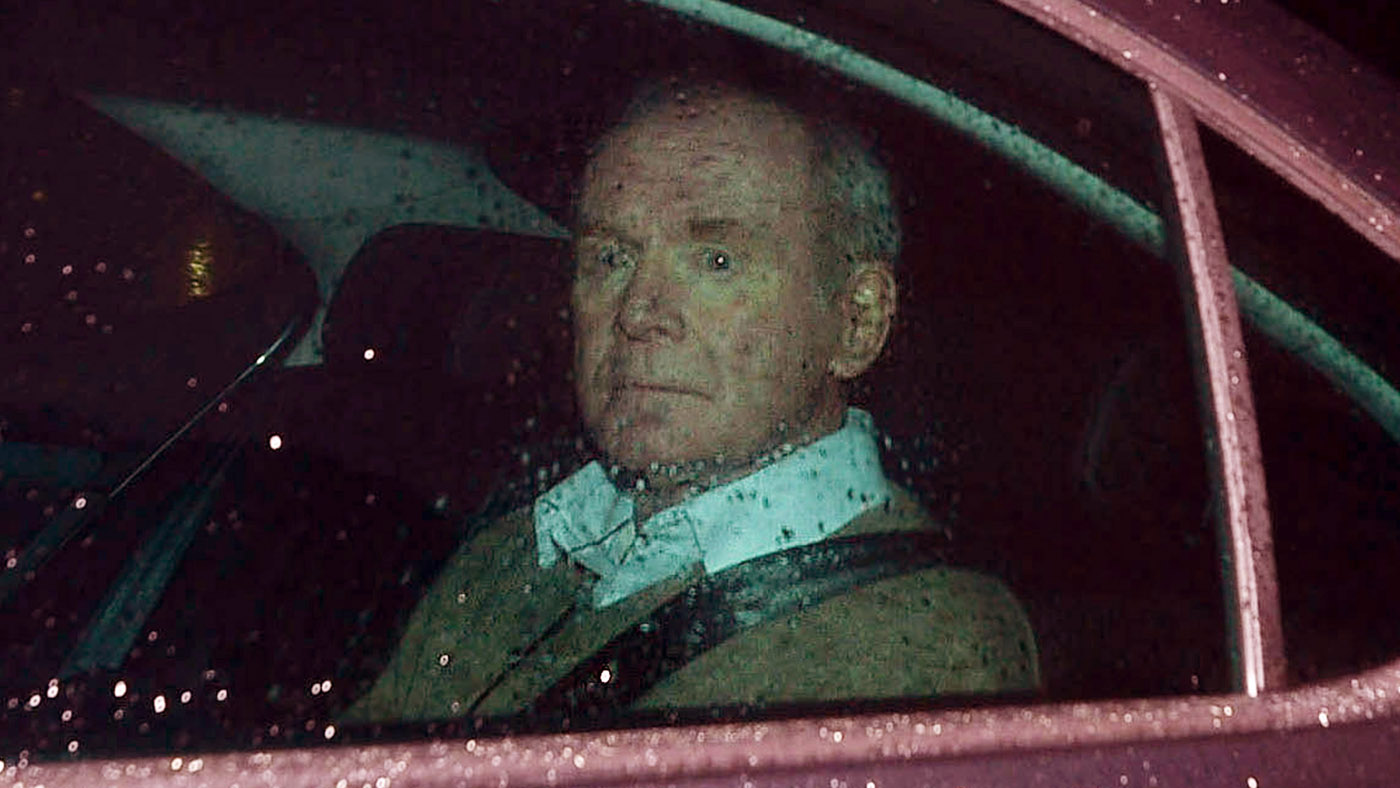Northern Ireland Assembly in crisis after McGuinness quits
Resignation over 'cash for ash' scandal expected to prompt 'rancorous and divisive' early elections

A free daily email with the biggest news stories of the day – and the best features from TheWeek.com
You are now subscribed
Your newsletter sign-up was successful
Martin McGuinness resigned as Northern Ireland's deputy first minister yesterday, setting in motion the collapse of the power-sharing executive.
The Sinn Fein politician, who has held the post since 2007, quit in protest at the handling of the botched green energy scheme that cost taxpayers £490m and could yet bring down First Minister Arlene Foster.
Under the power-sharing deal introduced by the Good Friday agreement, his resignation means the first minister is also removed from office pending fresh elections. Foster will continue in a caretaker role with limited powers.
The Week
Escape your echo chamber. Get the facts behind the news, plus analysis from multiple perspectives.

Sign up for The Week's Free Newsletters
From our morning news briefing to a weekly Good News Newsletter, get the best of The Week delivered directly to your inbox.
From our morning news briefing to a weekly Good News Newsletter, get the best of The Week delivered directly to your inbox.
At the heart of the dispute is the renewable heat incentive (RHI) set up by Foster in 2012, when she was enterprise minister, in a bid to encourage production of heat from green sources. "Known as the 'cash for ash' scandal, it has been alleged that the scheme had serious flaws which meant [Northern Irish businesses] were given a financial incentive to pointlessly burn fuel," reports The Independent.
In his resignation letter, McGuinness attacked Foster's Democratic Unionist Party for its handling of the scandal. Its response has been "completely out of step with a public mood", he said, and had inflicted "enormous damage on the executive, the assembly and the entire body politic".
He added: "The refusal of Arlene Foster to recognise the public anger or to exhibit any humility in the context of the RHI scandal is indicative of a deep-seated arrogance."
McGuinness's decision will heap even more pressure on Foster and the DUP and almost certainly lead to "rancorous and divisive" early elections, says The Guardian.
A free daily email with the biggest news stories of the day – and the best features from TheWeek.com
However, according to Gavin Gordon, the BBC's Northern Ireland political correspondent, voters are already "asking what this will achieve if the DUP and Sinn Fein are returned as the biggest parties".
Sinn Fein has made it clear it will not return to the status quo, but this could result in "tortuous negotiations", continues Gordon. With Westminster focused on the bigger issue of the forthcoming Brexit talks and the prospect of a deal complicated by uncertainty about whether the UK's split from the EU will mean Ireland is again divided by a hard border, he questions whether ministers have the appetite to address another constitutional crisis.
-
 Local elections 2026: where are they and who is expected to win?
Local elections 2026: where are they and who is expected to win?The Explainer Labour is braced for heavy losses and U-turn on postponing some council elections hasn’t helped the party’s prospects
-
 6 of the world’s most accessible destinations
6 of the world’s most accessible destinationsThe Week Recommends Experience all of Berlin, Singapore and Sydney
-
 How the FCC’s ‘equal time’ rule works
How the FCC’s ‘equal time’ rule worksIn the Spotlight The law is at the heart of the Colbert-CBS conflict
-
 Local elections 2026: where are they and who is expected to win?
Local elections 2026: where are they and who is expected to win?The Explainer Labour is braced for heavy losses and U-turn on postponing some council elections hasn’t helped the party’s prospects
-
 How corrupt is the UK?
How corrupt is the UK?The Explainer Decline in standards ‘risks becoming a defining feature of our political culture’ as Britain falls to lowest ever score on global index
-
 The high street: Britain’s next political battleground?
The high street: Britain’s next political battleground?In the Spotlight Mass closure of shops and influx of organised crime are fuelling voter anger, and offer an opening for Reform UK
-
 Is a Reform-Tory pact becoming more likely?
Is a Reform-Tory pact becoming more likely?Today’s Big Question Nigel Farage’s party is ahead in the polls but still falls well short of a Commons majority, while Conservatives are still losing MPs to Reform
-
 Taking the low road: why the SNP is still standing strong
Taking the low road: why the SNP is still standing strongTalking Point Party is on track for a fifth consecutive victory in May’s Holyrood election, despite controversies and plummeting support
-
 What difference will the 'historic' UK-Germany treaty make?
What difference will the 'historic' UK-Germany treaty make?Today's Big Question Europe's two biggest economies sign first treaty since WWII, underscoring 'triangle alliance' with France amid growing Russian threat and US distance
-
 Is the G7 still relevant?
Is the G7 still relevant?Talking Point Donald Trump's early departure cast a shadow over this week's meeting of the world's major democracies
-
 Angela Rayner: Labour's next leader?
Angela Rayner: Labour's next leader?Today's Big Question A leaked memo has sparked speculation that the deputy PM is positioning herself as the left-of-centre alternative to Keir Starmer